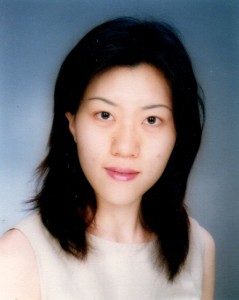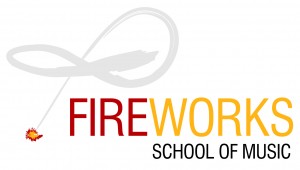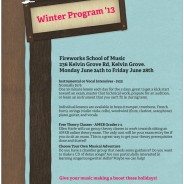Learn How to Play the Piano at Fireworks
Our Piano Teachers
 Eileen Kwon graduated in 2003 with a Bachelor of Music from Kangnam University, South Korea, and she has over 18 years experience teaching piano. Eileen’s favourite composer is Sergei Rachmaninoff.
Eileen Kwon graduated in 2003 with a Bachelor of Music from Kangnam University, South Korea, and she has over 18 years experience teaching piano. Eileen’s favourite composer is Sergei Rachmaninoff.
Sometimes it is hard to keep motivated in the quest to learn how to play the piano. We have an assortment of ideas and incentives to help keep students moving along (I like to call it bribery and corruption).
Practice Charts are up in our waiting room. Any student can sign their name up on the charts to track their own practice over the course of the term. Six practices a week earns them a sticker, and a whole term of stickers earns them their choice of prize from my box of prizes.
End of Term Concerts are usually held on the second last Sunday of any term, and we encourage students to get up and show us their favourite piece they have been working on. It is quite a relaxed atmosphere, and we usually have a bit of afternoon tea afterwards.
100 songs challenge: you will find pieces of scrapbooking paper up on our walls, marked as the 100 songs challenge. Any student is able to participate in this, just talk to your piano teacher about what songs you learn in your piano lesson can count towards your chart. When you reach 100 songs I will get you a trophy! This is an idea that we picked up from a Brisbane workshop with piano teacher and pedagogue Elissa Milne. It encourages students to learn more music, improve their reading and sight-reading, and be more independent in their practice. To find out more about how using a repertoire-rich program of learning can help you when you learn to play the piano, you can read more in this article by Elissa Milne: The Surprising Power of Quantity.
Stickers for younger students (or some adults, even!) never seem to lose their popularity.
Formal Exams (such as AMEB exams) can be a good motivator for some students, when they are ready. If you are interested in you or your child taking formal exams such as AMEB, discuss it with your piano teacher early on, so you can work out together where an exam might sit in the program of learning. Younger piano students can work towards P-Plate Piano exams before they are ready for full AMEB exams.
It’s not expected that all of these will appeal to every student, but teachers and parents need to have many tricks up their sleeves, in the hope that a couple might work!

